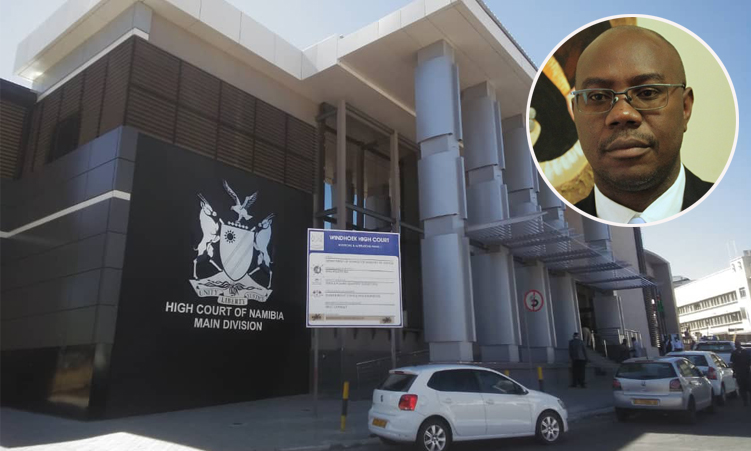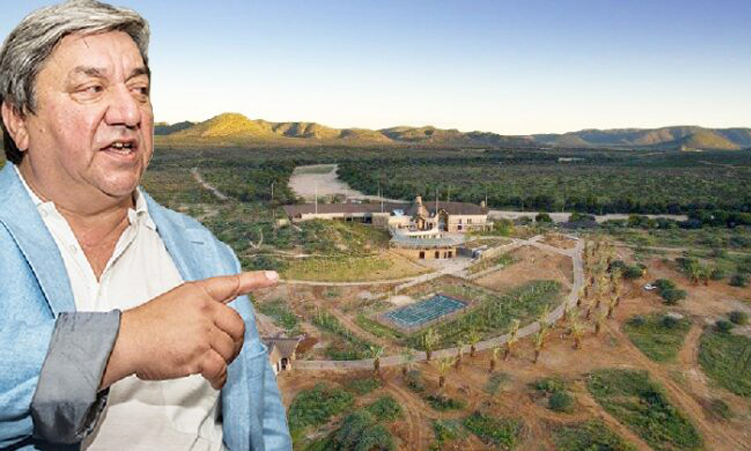A Judge of the Windhoek High Court is weighing up a legal attack by the Popular Democratic Movement (PDM) against an agreement through which a company owned by a Russian billionaire bagged a 99-year lease of four farms east of Windhoek from the government in 2018.
This is after judge Orben Sibeya yesterday heard oral arguments on an application in which the PDM is trying to have the farm purchase, donation and 99-year lease agreement between the government, the company Comsar Properties SA, owned by Russian billionaire Rashid Sardarov, and the former owners of four farms reviewed and set aside.
Sibeya reserved his judgement on the application and postponed the delivery of his decision to 15 August at the end of the hearing before him.
The PDM is asking the High Court to review and set aside former land reform minister Utoni Nujoma’s decision to give permission for Comsar Properties, which is registered in Switzerland, to lease the farms Rainhof, Kameelboom and Wolffsgrund and a portion of the farm Smaldeel from the government.
The farms, situated east of Windhoek and north of Dordabis, have a combined size of more than 17 000 hectares.
The PDM is also asking the court to review and set aside the government’s or Nujoma’s decision to lease the farms to Comsar Properties.
Alternatively, the party wants the court to declare that the arrangement through which the government became the registered owner of the farms when Comsar Properties donated the land to it, and the government then agreed to lease the same land to the company for 99 years, is unlawful.
Comsar Properties paid the purchase price of N$43,4 million to the farms’ owners and then donated the farms to the government. In return, the government agreed to thereafter lease the land to the company for 99 years at a nominal rent equal to the land tax for the farms, which currently is about N$160 000 annually.
Comsar Properties also paid N$118 million to the farms’ owners as compensation for the loss of their livestock farming business on the farms.
Before those transactions were done, Comsar Properties bought three other farms, with a combined size of about 28 000 hectares, in the same area in 2012 and 2013, and combined the land to form a game reserve operating under the name Marula Game Ranch.

The company’s farm purchases in 2012 and 2013 were done after the minister of land reform gave his consent for the acquisition of commercial farmland by the Swiss company as a non-Namibian entity, as required by the Agricultural (Commercial) Land Reform Act.
ARGUMENTS
During the hearing before Sibeya, senior counsel Jean Marais, who represented the PDM, argued that the deal through which Sardarov’s company secured the 99-year lease of the four farms was an artificial transaction aimed at circumventing the Agricultural (Commercial) Land Reform Act after the Cabinet decided that the land reform minister should not give his consent for the sale of the farms to the company.
The practical effect of that deal was that the company acquired ownership of commercial farmland in Namibia, contrary to law, Marais argued.
He also argued that the agreement between the government and Comsar Properties might on the face of it tick the right boxes to appear to be a lease agreement and on a superficial level complies with the law, but when it is analysed its artificial nature becomes apparent.
On behalf of the minister and government, lawyer Gerson Narib argued that the act permits the minister of land reform to give consent for the acquisition, occupation or possession of land by a non-Namibian entity for investment purposes.
The main purpose of the agreement between the government and Comsar Properties was securing the company’s substantial investment in Namibia, he added.
Senior counsel Wim Trengove, who represented Comsar Properties, argued that in terms of the lease agreement the company may not sell, mortgage or lease out the land. That shows the company did not acquire rights that are inherent to ownership of land, he also argued.
Trengove noted that the law specifically allows the acquisition or long-term lease of commercial agricultural land by a non-Namibian entity with the land reform minister’s consent. If the purchase of the four farms by Comsar Properties and the lease of the farms from the government amount to a transfer of ownership of the land to the Swiss company, Nujoma consented to it, he argued as well.
He further argued that if the court declares the lease agreement as invalid, it then should also order that the four farms should be sold on the open market and the proceeds of that sale should go to Sardarov’s company.
Sardarov, who is the owner of a company that processes and ships petroleum products, natural gas and sulphur in Russia, has invested more than N$1 billion in Namibia through Comsar Properties and Namibian subsidiaries of the company since 2012, the court has been informed.
Stay informed with The Namibian – your source for credible journalism. Get in-depth reporting and opinions for
only N$85 a month. Invest in journalism, invest in democracy –
Subscribe Now!










